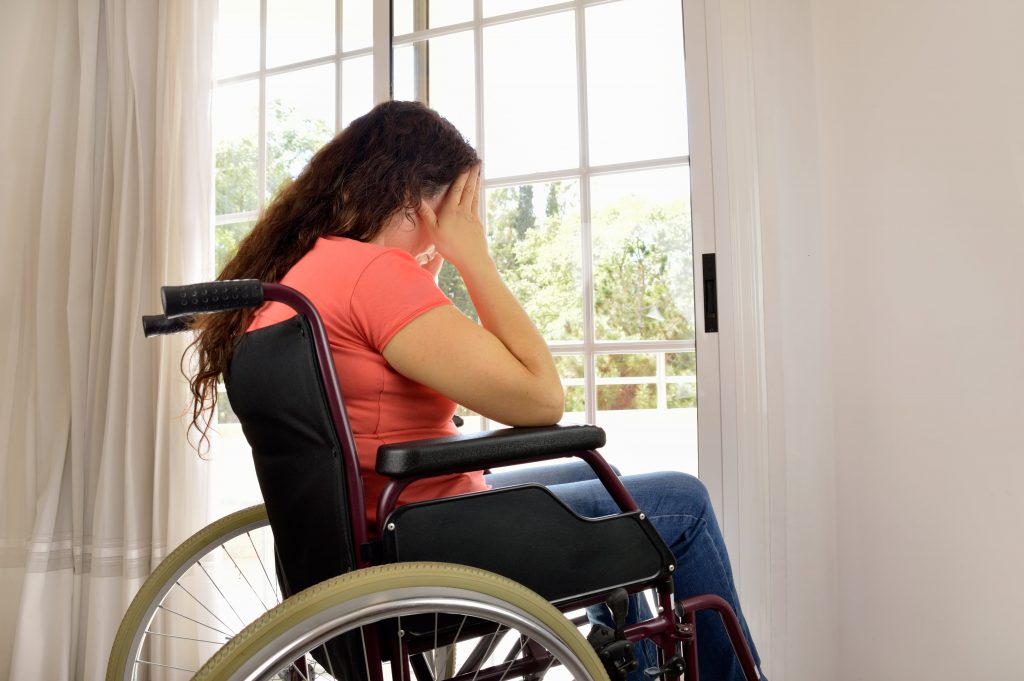National Stress Awareness Day – 2nd November
Stress has been more common than ever over the past couple of years. Especially among people who already faced existing daily challenges such as ill-health or poor mobility. Due to the COVID-19 pandemic, they have had to deal with added uncertainties and restrictions
This has made National Stress Awareness Day – celebrated today – even more important this year. We will explore the aims and activities of this annual campaign later. First, let’s look at what stress is. At the end of this blog, we will outline some of the ways you can self-manage stress.
What do we mean by ‘stress’?
Some people thrive on low-level stress. It can spur them on to meet deadlines or provide the burst of energy and focus needed to tackle mildly perilous activities. However, chronic stress can impact on you physically, mentally, and emotionally.
According to CIPHR 2021 statistics, the overwhelming majority (79%) of UK adults feel stressed at least one day a month and on average, a typical UK adult feels stressed approximately 8.27 days a month. That’s more than twice a week! Can you imagine how much this will of also been affected by the Covid-19 pandemic?

Stress is a response to fear or a sense of crisis. It is your body’s response to danger – even if that is something you perceive, rather than a physical threat. For example, fear about your future or how you will cope with a long-term disability.
Stress at this level can manifest as flight, fight, or freeze. This is when you have an overwhelming urge to run away from the situation, lash out, or shut down for instance. You can feel overwhelmed, uncertain, and irritable. All of which can make some situations worse and can affect our relationships.
What can create feelings of stress? It is certainly not always the most obvious problems such as money hardship, job worries or a difficult relationship. In the Mental Health Foundation study, 36% of those who felt stressed were triggered by their own or a loved one’s long-term health condition. This figure grew to 44% when the person was aged over 55.
Clearly then, those with a disability, or their families, could be particularly vulnerable to stress.
Stress can lead to other issues too, such as overeating or relying on alcohol to help you to cope. In the study, 51% of people with stress reported feeling depressed, while 61% linked it to feeling anxious too. Read more here.

The importance of National Stress Awareness Day
Finding ways to deal with stress starts by acknowledging the issue and being open to discussing it.
The first Wednesday of November is always National Stress Awareness Day. This initiative was originally launched by the International Stress Management Association, but you may find local activities to support its aims.
It draws attention to stress to dismantle some of the stigma and stumbling blocks that stop people from asking for help. In a nutshell, it creates conversations, that can then lead to solutions.
The awareness day also signposts people to sources of support, and information about the best ways to self-managing stress.
How to tackle chronic stress
It’s not uncommon for other people to tell you to calm down and stop worrying. Dealing with stress is not always that easy! There are ways to prevent and alleviate it though. These include:
- Don’t take on too much!
Split big tasks down into smaller, more manageable activities. Ask for help from others too, so you don’t overburden yourself
- Talk things through
It’s amazing how discussing your fears and concerns can make them seem more controllable. Bottling things up can have the opposite effect, increasing your stress levels. Conversations with loved ones or sources of professional support can often lead to new ideas and adaptations that make your life easier.

- Invest in your health and wellbeing
One of the best ways to handle stress is to give yourself time to become calmer and more mindful. This could be a walk in the fresh air, for example, or some exercise that gets your positive hormones pumping and burns off nervous energy. Eating healthily can also help.
Basically, if you look after yourself a little, you could find your stress levels fall.
- Planning and positivity
This too is about taking time to get things into perspective and relieve some of your feelings of stress. You could make a list of all the good things you have – your blessings – to counterbalance some of your fears. Or, create a plan that makes your weekly tasks easier to cope with, so you don’t feel overwhelmed and you build in the ‘me time’ mentioned above!
Don’t ignore stress
As the National Stress Awareness Day highlights, stress shouldn’t be ignored or taken lightly. It can impact on your quality of life, relationships, and ability to cope with daily tasks.
Making it important to find help and practical solutions that can be a source of stress relief for you personally.

